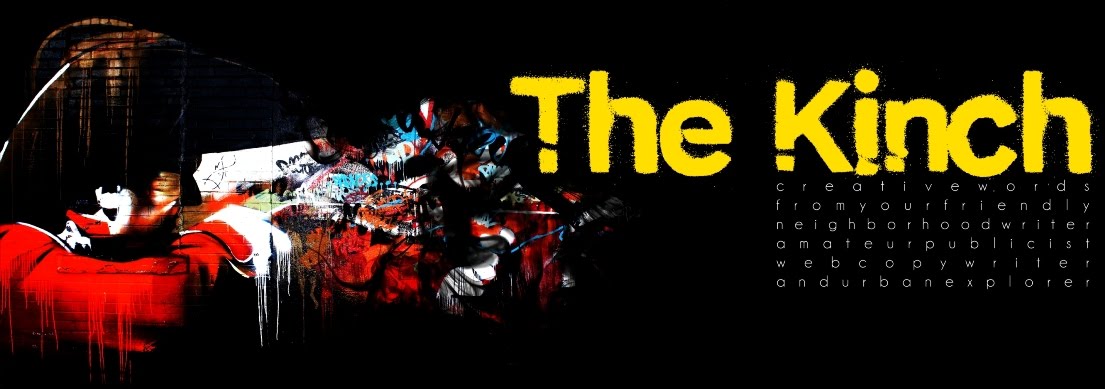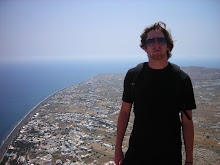Three Words
Istanbul was alive, ready for adventure, and we sat drinking café Turk and smoking cigarettes on the hostel rooftop and watching the white gulls circle the spires of the Blue Mosque. Across from the Blue Mosque stood the aging Hagia Sophia, the ancient monolith from the Byzantine Empire. In between the two mausoleums sat an expanse of pristine greenery and gardens and fountains. We were thousands of miles away from home and we sat and talked and played chess waiting to step out into this foreign land. The morning sun shone off the old city, and the sound of the street rose to the roof and fused into an unintelligible hum occasionally pierced by a siren speeding by; off to some unknown crime or accident or death. It’s the music of the city—the sounds of compassion, of degradation, of laughing, of crying, of friends and enemies, of morning exchanges and of greetings and farewells—the sound of true humanity.
The spring air was brisk, and my friend Zack put up his black hood to keep warm. He sat smoking. In between puffs Zack shot dialogue in my general direction, but I was too caught up in a game of chess with my friend Jeff to respond. I watched Jeff chew his already badly bitten fingernails and pull at his hair as he decided his next move. Occasionally Zack offered unwanted advice.
“Jeff, yo, move there, man.”
“Zack, shut the fuck up.”
“Man, you got it. Trust me.”
“Zack. Seriously. Shut the fuck up.”
This usually preceded Zack leaning back in his seat with a pensive look on his face, as if he was deducing the outcome of the game, or other unsolved mysteries of the world, but he was just bored and probably stubborn that the game had taken so long. Finally the game ended. Jeff won. He always won; at the sacrifice of his fingernails and mental stability, but he won nonetheless and was sure to let both of us know.
“YESSSS. FUCK YEAH. THOUGHT YOU HAD ME THAT TIME DIDN'T YOU FUCKER!”
“Yeah...Good game, man.”
“From now on call me ‘Chessmaster.’ Or ‘Lord of the Rook.’ Or just...‘The King.’”
We ordered another café from this bumbling British alcoholic named Rob, who worked at the hostel. He claims that he smoked weed with Dave Chapelle and half the Knicks one night in New York, but he was over thirty and missing teeth, so we don’t really buy it. Plus they probably drug test in the NBA. He got our drinks and left us in peace and I took a pinch of Turkish tobacco and rolled a cigarette and put it to my lips and lit it and inhaled deeply. The smoke burned the back of my throat so I washed it down with a sip of the steaming brew and sat back and watched the gulls and waited to get lost. We were at peace. Slightly bored, but not a worry in the world could reach us there—atop the hostel in Istanbul.
Jeff looked at the two of us. “You guys ready?”
Without responding we stood up and pushed in our chairs and grabbed our backpacks and left the hostel and walked into the street. Our goal: get lost—as it had been for every destination over our month long backpacking experience. We had all studied in Europe over the semester; I in Florence, Italy, and Zack and Jeff in Barcelona, Spain and it felt right after the semester to spend a month backpacking and island hopping across Greece and Turkey—it felt right to lose ourselves; to scream “Go! Go! Go!” on the top of our lungs with a backpack and a beer and scrape every piece of life from every corner of the world. We were mad to live—to push forward from one wild adventure to the next draped under the thin veil of a starry night and the yellow glow of the old wrought iron lampposts or the warm Mediterranean sun and a cool sea breeze. We were free. Not a worry could reach us. Travel was life. Travel was freedom.
And with this in mind we set out to wander the streets of Istanbul, not to see the sights, or spend the day looking at the world through the lens of a camera, or stay at the hostel drinking with the Aussies, but to see what abandonment would bring—what cards life would deal us on this day. But on this day, our obsession with finding and living the rush of life came to a halt with three words.
We walked for two hours away from the tourist district of the old city, into the more residential, suburban district of the city. Around us walked the working class of Istanbul, the residents, who made our adventure their home. Age and weather had taken a greater toll on the buildings than in the tourist district. They didn’t feel decayed, or broken down like a third world country, but used—lived in for generations in a happy and thriving community. Clothes lines were strewn from building to building, their attached garments blowing in the wind, and we pushed on amongst the people. In the windows sat potted plants or red Turkish flags blowing in the wind. There was an unspoken sense of pride amongst these people, pride of nation, of religion, of community. We passed a shoemaker sitting in a rocking chair watching a soccer game on the television and a dozen people stood frozen watching the screen talking and smoking and cheering and embracing when the game turned in their favor. I remember the smell of roasted chicken and shawarma kabob and the charcoal smell from white plums of smoke billowing from the brick ovens of restaurants—but they weren’t restaurants, with menus and waiters and music and service, but simply kitchens; where the people could enter and talk to the cook while he prepared them a dish.
And then it happened. The call to prayer rose from the city in a harmonic wail. The mosques were singing to each other, chanting from one minaret to the other and one voice seemed louder than the rest and we followed it. A few blocks away we stumbled upon the source. In the middle of this run-down working class district sat a building of pristine beauty, of ornate detail, divinely glowing in the early afternoon sun. The mosque had one large golden dome, and four singing minarets each topped with a blue crescent moon. In the run down district, this was the centerpiece, contrasting the broken building with its divine quality, but it fit nonetheless snug in between the alley-like streets. This was the treasure of the people that lived there.
And so we approached the building, and took a peek inside, took a peek into a cultural harmony unbeknownst to us of any Islamic nation. They crouched in a line, a man in a business suit, a homeless man, a UPS worker, and a farmer—all there for the same reason. In those walls, class doesn’t exist, only Allah and his faithful. In unison they prayed and we waited on the outside, peering in, till they finished. When the call to prayer ended they lined up at the door and put on their shoes and we stood waiting till they approached us.
The man wearing blue jeans and a tanned leather jacket drew near us interested in our presence.
“Hello,” he said. His English was thick with accent.
Zack took the initiative and responded, “Hey, can we uhhh…go in?”
“Yes, of course. Where are you from?”
“America,” said Jeff.
“Armenia?”
“No, no, no…America, like the United States. USA,” I replied.
“Ahhhhh. You kill Muslims.”
Silence. None of us could say anything. His tone was not malicious; he just wanted to tell us something. If he ever had the chance to speak to one American, that is what he would say. He knew. He knew that the war in our eyes was something so far away from home. He knew we had forgotten the value of a human life. The war in Iraq and Afghanistan was something that only existed within the media—in headlines and news and documentaries and movies. To him, we were killing the people that held the same beliefs as he, and as we walked around his nation and his religion and his beliefs we forgot that we are from a country that was killing people like him.
“I’m sorry…We don’t support Bush or the war. I’m sorry.”
He nodded and left.
We entered the mosque and saw the unity that our country was destroying and it made us sick and embarrassed that we were part of something that the world considered to be unjust and evil. I wanted to change. To burn. To revolt against my own country. To physically be able to cast down the United States to prove to these people that I was not a killer of Muslims.
So we left and we went back to the hostel and smoked and played chess in silence wanting to forget those three words but unable to. We realized that these three words would stay with us forever, and to this day, they have.
In the recent presidential election, foreign policy has taken a back seat to the economy. Media coverage of the war has dropped to 2% in the last year, a 15% decrease since 2007. The American people are forgetting the value of human life. We are forgetting that while we are losing money, people are dying and the world looks down upon us. We want to escape the truth, to not care about what is happening abroad. To this day, we kill Muslims, and we forget.
Friday, December 19, 2008
Subscribe to:
Post Comments (Atom)


No comments:
Post a Comment